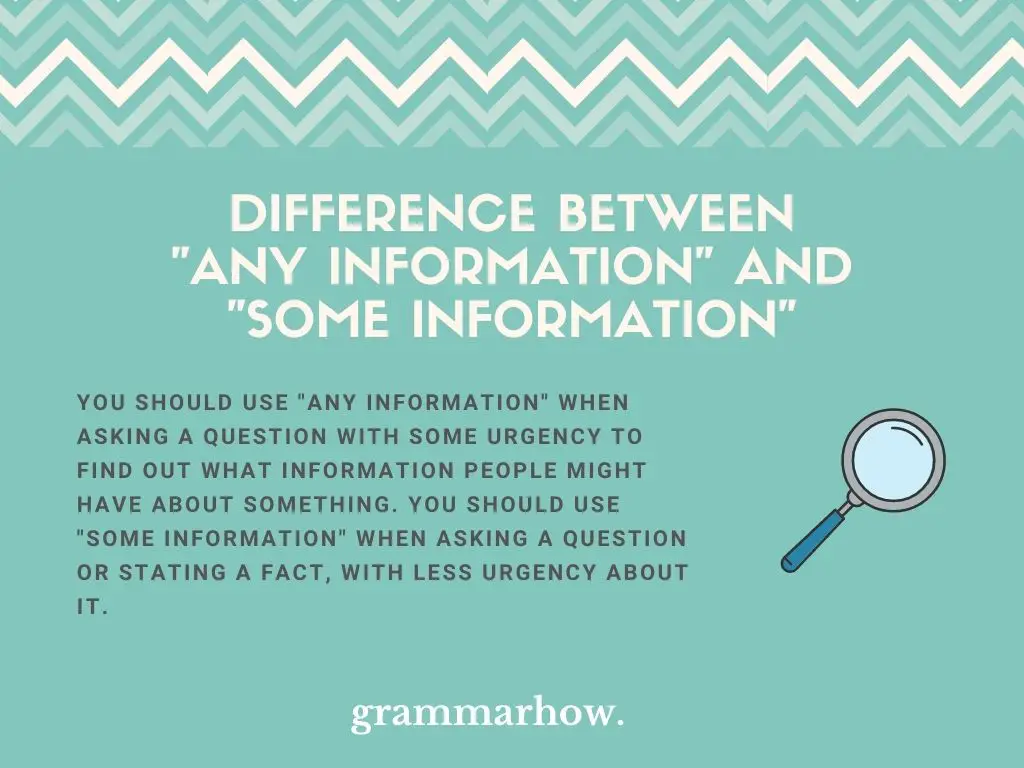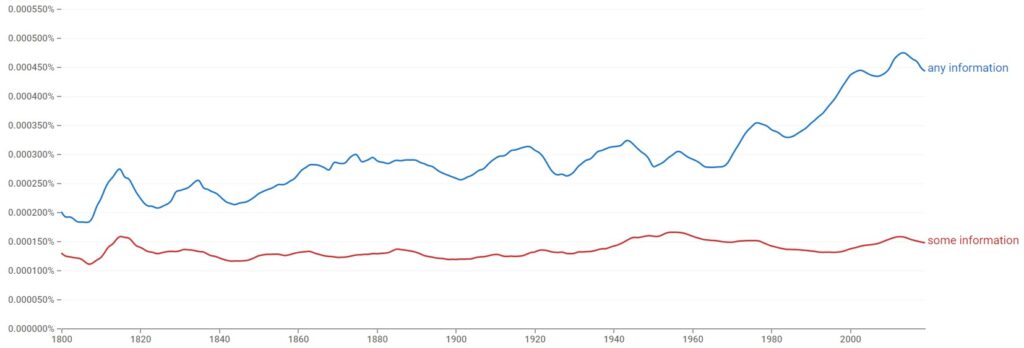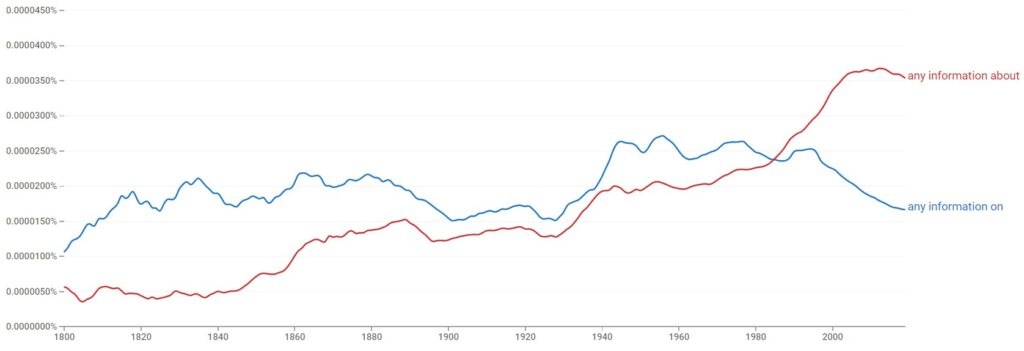When it comes to talking about information, we’re left with a few word choices. This article will look at using “any information” and “some information” and how the two phrases differ from each other.
What Is The Difference Between “Any Information” And “Some Information”?
You should use “any information” when asking a question with some urgency to find out what information people might have about something. You should use “some information” when asking a question or stating a fact, with less urgency about it.

“Any information” implies that we’re desperate for information. We’re so desperate, in fact, that we’ll take “any” information that we can get our hands on, even if it doesn’t really help us with whatever we’re asking for in the first place.
Typically, “any information” is only used in question form since it doesn’t make sense to say the following:
- I have any information for you.
However, if we say the above sentence in a negative way, it does work:
- I don’t have any information for you.
This way, it implies that we’ve tried to find information, but we’ve had no luck.
“Some information” is both a question or a statement. We can say “I have some information” whenever we want to provide information, and we can ask, “do you have some information,” though it’s much less urgent than using “any.”
Is “Any Information” Or “Some Information” Used The Most?
It might help you to understand which of the two phrases is used the most. That way, you’ll have a better time knowing which one you should focus more of your effort on understanding.
According to Google Ngram Viewer, “any information” is the most popular choice, and it has been for the last two centuries. “Some information” has remained flat and consistent in trends, but it’s never been as popular as “any information.”

According to Google, “Any Information” is mentioned 8,540 times on The New York Times website, while “Some Information” is mentioned 4,300 times.
Examples Of When To Use “Any Information” In A Sentence
Some examples might help you to understand more about the two phrases. We’ll start with “any information,” which we mostly use for questions or negative statements.
- Do you have any information that I could use for my broadcast?
- Don’t you have any useful information?
- I’m sorry, I don’t have any information for you!
- I haven’t got any information, and I’d appreciate it if you’d stop asking.
- Does anybody here have any information as to what is going on?
- Do you have any more information for me?
- Is there any information or updates that I need to know about?
“Any information” is an urgent question, implying that we’re desperate to get some answers. Using “any” shows that we’ll settle for even the smallest updates in information, even if they don’t strictly help our cause.
We can only use “any information” when writing negative statements, showing that we “don’t have any information.” This is true because it means we’ve tried to find even the slightest bit of evidence or information, but we’ve failed to do so.
Examples Of When To Use “Some Information” In A Sentence
“Some information” is slightly different. We still use it for questions, but it’s also best in positive statements, which makes it more useful as a statement phrase.
- I have some information that I think will be interesting.
- Do you have some information to give me?
- I hear you have some information, and I’d love to hear it.
- He has some information, and he thinks it’ll blow everyone’s minds.
- Do you have some more information to help me?
- I have some information if you would like it.
- Some information about this would go a long way!
“Some information” is more of a statement phrase, and we use it when we’re looking for some updates or information about a situation. There is less urgency when using “some,” showing that we’re happy to wait a bit before receiving the information.
Incidentally, “some information” can’t be used negatively. That means “I don’t have some information” is incorrect, and we shouldn’t use it.
Is It “Any Information On” Or “Any Information About”?
It might help to know which preposition comes after the phrases as well. There are two choices, “about” or “on.”
“Any information about” is the most appropriate preposition choice, though “any information on” does also work. Most native speakers use the two phrases interchangeably.
According to Google Ngram Viewer, “any information about” is more popular, though that wasn’t always the case. It’s only been in the last few decades that “about” was the more popular preposition, and “any information on” is still used fairly consistently today.

Is It “Information” Or “Informations”?
“Information” is an uncountable noun. Uncountable nouns can make learning certain language rules difficult, but once you understand one of them, you tend to understand all of them.
“Information” is the correct plural form of “Information.” Because it is an uncountable noun, we do not add “S” to the end like we would in any other pluralization case. The singular and plural forms are consistent with each other.
The same rules apply no matter how we use “information.” You might have already noticed from this article that we weren’t using the typical “S” plural form ending, and you can see that in the following:
- Correct: Any information
- Incorrect: Any informations
- Correct: Some information
- Incorrect: Any informations
When we use “any” or “some,” the noun after them is always in the plural form. That’s why it’s so important to remember how uncountable words work. If this was a countable noun, it would like this:
- Any people (plural of person)
- Some things (plural of thing)
“Information” is always “information,” both singular and plural.
You may also like: Information or Informations – What Is The Plural Of “Information”?
“Any Information” And “Some Information” – Synonyms
Finally, let’s go over some alternatives and synonyms that you might be able to use instead. These will all mean the same thing but will offer you a chance to mix up your sentence and vocabulary.
- Any updates
- Any new leads
- Some details
- Some figures
- Some statistics
- Any ideas
- Some ideas

Martin holds a Master’s degree in Finance and International Business. He has six years of experience in professional communication with clients, executives, and colleagues. Furthermore, he has teaching experience from Aarhus University. Martin has been featured as an expert in communication and teaching on Forbes and Shopify. Read more about Martin here.
